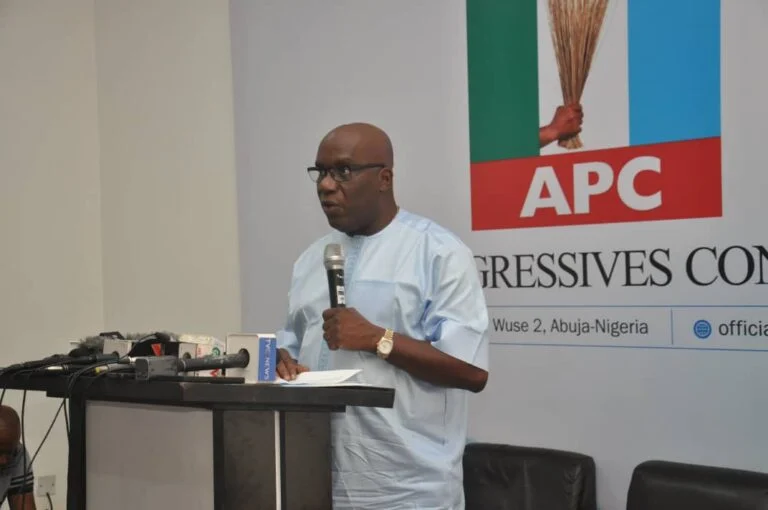Sequel to the ban placed on the operation of motorcycle riders by the Lagos Government, the State Police Command and his team on Wednesday seized 140 motorcycles and arrested 16 passengers and riders as enforcement of the ban.
Benjamin Hundeyin, the state Police Public Relations Officer, said 94 of the motorcycles were impounded by the police, while others were seized by men of the Lagos State Environmental Sanitation Enforcement Agency.
“There was over 90 percent compliance, but some motorcyclists still came out and we arrested and charged them to a mobile court.
“Sixteen passengers and motorcyclists were arrested; the majority of the motorcyclists did not carry passengers and some of the motorcyclists abandoned their motorcycles after sighting policemen,” he added.
The state Governor, Babajide Sanwo-Olu, on May 18, 2022, announced the ban on okada riders at a meeting with the state Commissioner of Police, Area Commanders, and Divisional Police Officers at the State House in Alausa.
The governor banned the riders in Eti-Osa, Ikeja, Surulere, Lagos Island, Lagos Mainland, and Apapa areas of the state.
The ban, which took effect from Wednesday, June 1, followed the killing of a sound engineer, David Imoh, in the Lekki area of the state.
There was no Okada rider within the vicinity of Obalande and Eti Osa LGA as policemen patrolled the area.
A grocery trader, Bolanle Asabi, said okada riders fled the area because of the ban.
A bus driver, Dominic Igene, said, “We appreciate what the Lagos State Government is doing with the ban of okadas in the metropolis.”
Another driver, Friday Osawen, appealed to the state to find alternatives for commuters, who might be stranded without the quick service of the riders.
A resident of the United Estate, Sangotedo, Joseph Martins, said there was an unusual absence of okadas in places where they usually converged.
He said, “Inside United Estate in Sangotedo, there were no bikes functioning; it was strange. I have been driving from Surulere to Eti-Osa, Sangotedo, and I haven’t seen any bike, except dispatch riders.”
A resident of Lekki Phase 1, Yomi Idowu, said bikes were not working in the area.
He said, “The residents here are moving as usual and there is no big deal. In fact, we are currently planning to launch a bus transit system to cushion the impact of the okada ban on our residents. So, there will be new mini shuttle buses to carry people around.”
In the Surulere LGA, one of our correspondents also noted that there was compliance with the ban.
However, a resident, Islamiat Gbadegesin, said bus fares were hiked due to the development.
She said, “Bus fares have increased and this is going to affect a lot of people plying the roads. Most places leading to major roads have been blocked by serious traffic.”
Another resident, who identified himself only as Oluwatunmida, said many commuters were stranded as there were not enough vehicles to convey them to their destinations.
“I had to take an Uber to work. A lot of people were stranded at bus stops. I wish they could make a good alternative for people because some buses don’t go to certain areas and this will make life harder for people,” he added.
A commuter, Ajala Adebayo, who lives at Sango, Ogun State, and works at Ikeja, asked the Lagos State Government to regulate the operation of the riders.
Adebayo said, “I used to take okada to beat time whenever I was running late to the office. But now, I have to leave my house on time just to beat traffic.
“The ban is going to affect a lot of things, but eventually, the positive will outweigh the negative effects.
“The rate of okada accident is high, which is caused by lack of regulation for okada riders.
“Okada business is a means of livelihood for youths, especially graduates who cannot secure employment after years of graduation.”
The Director, Press and Public Affairs, Lagos State Task Force, Gbadeyan Abdulraheem, said there was no resistance from the okada riders during the enforcement operation.
“Task force officers are everywhere in the affected areas; another team has just been deployed to Abule-Egba,” he added.
It was gathered that the police patrolled the six affected councils a day to the ban to warn those who wanted to defy the state directive.
The patrol reportedly involved the police, Army, Navy, Lagos State Traffic Management Authority, Lagos Neighbourhood Safety Corps, Rapid Response Squad, task force, and other security agencies.
The General Manager of the Lagos State Neighbourhood Safety Corps, Ifalade Oyekan, said the government’s action was justified.
“The government cannot fold its arms as the menace of okada riders increase on a daily basis,” he was quoted as saying in a statement on the state government’s website.
The Lagos State Commissioner for Information and Strategy, Mr. Gbenga Omotosho, said the ban was in the interest of all residents and visitors.
He said, “It is backed up by security and safety concerns. In the first quarter of the year, we had 1,712 accidents in Lagos State and 45 percent of them were from okada riding. We discovered that youths aged 30 to 39 ride okadas because they want a faster means of transportation and they do not want to work. The chicken was feeding on something ever before corn arrived; Lagos State is the smallest state in Nigeria with the highest population of people, size, and landmass, so why can’t people survive without okadas?
“You have to be alive before thinking about what to feed on and earning a living. We believe that there are decent ways of earning a living, like the government providing land so that bike men can farm or otherwise, they can go to the Lagos State Trust Fund to seek funds. Commuters should rely on other means of transportation instead of okadas.”

 BIG STORY2 days ago
BIG STORY2 days ago
 BIG STORY3 days ago
BIG STORY3 days ago
 BIG STORY3 days ago
BIG STORY3 days ago
 BIG STORY3 days ago
BIG STORY3 days ago
 BIG STORY1 day ago
BIG STORY1 day ago
 BIG STORY2 days ago
BIG STORY2 days ago
 BIG STORY3 days ago
BIG STORY3 days ago
 BIG STORY2 days ago
BIG STORY2 days ago
































